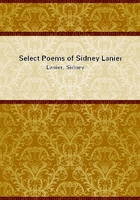
第22章 CHAP. VII.(2)
Sec. 82. But the husband and wife, though they have but one common concern, yet having different understandings, will unavoidably sometimes have different wills too; it therefore being necessary that the last determination, i. e. the rule, should be placed somewhere; it naturally falls to the man's share, as the abler and the stronger. But this reaching but to the things of their common interest and property, leaves the wife in the full and free possession of what by contract is her peculiar right, and gives the husband no more power over her life than she has over his; the power of the husband being so far from that of an absolute monarch, that the wife has in many cases a liberty to separate from him, where natural right, or their contract allows it; whether that contract be made by themselves in the state of nature, or by the customs or laws of the country they live in; and the children upon such separation fall to the father or mother's lot, as such contract does determine.
Sec. 83. For all the ends of marriage being to be obtained under politic government, as well as in the state of nature, the civil magistrate cloth not abridge the right or power of either naturally necessary to those ends, viz. procreation and mutual support and assistance whilst they are together; but only decides any controversy that may arise between man and wife about them.
If it were otherwise, and that absolute sovereignty and power of life and death naturally belonged to the husband, and were necessary to the society between man and wife, there could be no matrimony in any of those countries where the husband is allowed no such absolute authority. But the ends of matrimony requiring no such power in the husband, the condition of conjugal society put it not in him, it being not at all necessary to that state.
Conjugal society could subsist and attain its ends without it;nay, community of goods, and the power over them, mutual assistance and maintenance, and other things belonging to conjugal society, might be varied and regulated by that contract which unites man and wife in that society, as far as may consist with procreation and the bringing up of children till they could shift for themselves; nothing being necessary to any society, that is not necessary to the ends for which it is made.
Sec. 84. The society betwixt parents and children, and the distinct rights and powers belonging respectively to them, I have treated of so largely, in the foregoing chapter, that I shall not here need to say any thing of it. And I think it is plain, that it is far different from a politic society.
Sec. 85. Master and servant are names as old as history, but given to those of far different condition; for a freeman makes himself a servant to another, by selling him, for a certain time, the service he undertakes to do, in exchange for wages he is to receive: and though this commonly puts him into the family of his master, and under the ordinary discipline thereof; yet it gives the master but a temporary power over him, and no greater than what is contained in the contract between them. But there is another sort of servants, which by a peculiar name we call slaves, who being captives taken in a just war, are by the right of nature subjected to the absolute dominion and arbitrary power of their masters. These men having, as I say, forfeited their lives, and with it their liberties, and lost their estates; and being in the state of slavery, not capable of any property, cannot in that state be considered as any part of civil society;the chief end whereof is the preservation of property.
Sec. 86. Let us therefore consider a master of a family with all these subordinate relations of wife, children, servants, and slaves, united under the domestic rule of a family; which, what resemblance soever it may have in its order, offices, and number too, with a little common-wealth, yet is very far from it, both in its constitution, power and end: or if it must be thought a monarchy, and the paterfamilias the absolute monarch in it, absolute monarchy will have but a very shattered and short power, when it is plain, by what has been said before, that the master of the family has a very distinct and differently limited power, both as to time and extent, over those several persons that are in it; for excepting the slave (and the family is as much a family, and his power as paterfamilias as great, whether there be any slaves in his family or no) he has no legislative power of life and death over any of them, and none too but what a mistress of a family may have as well as he. And he certainly can have no absolute power over the whole family, who has but a very limited one over every individual in it. But how a family, or any other society of men, differ from that which is properly political society, we shall best see, by considering wherein political society itself consists.
Sec. 87. Man being born, as has been proved, with a title to perfect freedom, and an uncontrouled enjoyment of all the rights and privileges of the law of nature, equally with any other man, or number of men in the world, hath by nature a power, not only to preserve his property, that is, his life, liberty and estate, against the injuries and attempts of other men; but to judge of, and punish the breaches of that law in others, as he is persuaded the offence deserves, even with death itself, in crimes where the heinousness of the fact, in his opinion, requires it.